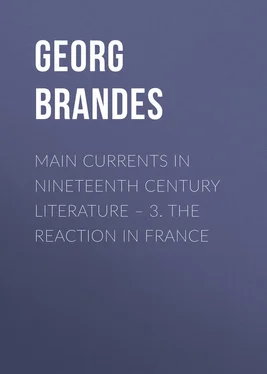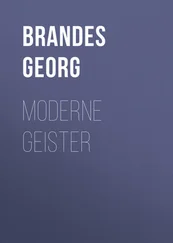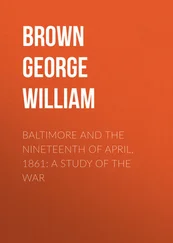Georg Brandes - Main Currents in Nineteenth Century Literature – 3. The Reaction in France
Здесь есть возможность читать онлайн «Georg Brandes - Main Currents in Nineteenth Century Literature – 3. The Reaction in France» — ознакомительный отрывок электронной книги совершенно бесплатно, а после прочтения отрывка купить полную версию. В некоторых случаях можно слушать аудио, скачать через торрент в формате fb2 и присутствует краткое содержание. Жанр: foreign_antique, foreign_prose, на английском языке. Описание произведения, (предисловие) а так же отзывы посетителей доступны на портале библиотеки ЛибКат.
- Название:Main Currents in Nineteenth Century Literature – 3. The Reaction in France
- Автор:
- Жанр:
- Год:неизвестен
- ISBN:нет данных
- Рейтинг книги:4 / 5. Голосов: 1
-
Избранное:Добавить в избранное
- Отзывы:
-
Ваша оценка:
- 80
- 1
- 2
- 3
- 4
- 5
Main Currents in Nineteenth Century Literature – 3. The Reaction in France: краткое содержание, описание и аннотация
Предлагаем к чтению аннотацию, описание, краткое содержание или предисловие (зависит от того, что написал сам автор книги «Main Currents in Nineteenth Century Literature – 3. The Reaction in France»). Если вы не нашли необходимую информацию о книге — напишите в комментариях, мы постараемся отыскать её.
Main Currents in Nineteenth Century Literature – 3. The Reaction in France — читать онлайн ознакомительный отрывок
Ниже представлен текст книги, разбитый по страницам. Система сохранения места последней прочитанной страницы, позволяет с удобством читать онлайн бесплатно книгу «Main Currents in Nineteenth Century Literature – 3. The Reaction in France», без необходимости каждый раз заново искать на чём Вы остановились. Поставьте закладку, и сможете в любой момент перейти на страницу, на которой закончили чтение.
Интервал:
Закладка:
One day in the early spring of 1802, the little town of Weimar was in the greatest excitement over an event which was the talk of high and low. It had long been apparent that some special festivity was in preparation. It was known that a very famous and highly respected man, President von Kotzebue, had applied privately to the Burgomaster for the use of the newly decorated Town Hall. The most distinguished ladies of the town had for a month past done nothing but order and try on fancy dresses. Fräulein von Imhof had given fifty gold guldens for hers. Astonished eyes had beheld a carver and gilder carrying a wonderful helmet and banner across the street in broad daylight. What could such things be required for? Were there to be theatricals at the Town Hall? It was known that an enormous bell mould made of pasteboard had been ordered. For what was it to be used? The secret soon came out. Some time before this, Kotzebue, famous throughout Europe as the author of Menschenhass und Reue , had returned, laden with Russian roubles and provided with a patent of nobility, to his native town, to make a third in the Goethe and Schiller alliance. He had succeeded in gaining admission to the court, and the next thing was to obtain admission to Goethe's circle, which was also a court, and a very exclusive one. The private society of intimates for whom Goethe wrote his immortal convivial songs (Gesellschaftslieder) met once a week at his house. Kotzebue had himself proposed for election by some of the lady members, but Goethe added an amendment to the rules of the society which excluded the would-be intruder, and prevented his even appearing occasionally as a guest. Kotzebue determined to revenge himself by paying homage to Schiller in a manner which he hoped would thoroughly annoy Goethe. The latter had just suppressed some thrusts at the brothers Schlegel in Kotzebue's play, Die Kleinstädter , which was one of the pieces in the repertory of the Weimar theatre; so, to damage the theatre, Kotzebue determined to give a grand performance in honour of Schiller at the Town Hall. Scenes from all his plays were to be acted, and finally The Bell was to be recited to an accompaniment of tableaux vivants. At the close of the poem, Kotzebue, dressed as the master-bellfounder, was to shatter the pasteboard mould with a blow of his hammer, and there was to be disclosed, not a bell, but a bust of Schiller. The Kotzebue party, however, had reckoned without their host, that is to say, without Goethe. In all Weimar there was only one bust of Schiller, that which stood in the library. When, on the last day, a messenger was sent to borrow it, the unexpected answer was given, that never in the memory of man had a plaster cast lent for a fête been returned in the condition in which it had been sent, and that the loan must therefore be unwillingly refused. And one can imagine the astonishment and rage of the allies when they heard that the carpenters, arriving at the Town Hall with their boards, laths, and poles, had found the doors locked and had received an intimation from the Burgomaster and Council that, as the hall had been newly painted and decorated, they could not permit it to be used for such a "riotous" entertainment.
This is only a small piece of provincial town scandal. But what is really remarkable, what constitutes the kernel of the story, is the fact that the whole company of distinguished ladies who had hitherto upheld the fame of Goethe (Countess Henriette von Egloffstein; the beautiful lady of honour and poetess Amalie von Imhof, at a later period the object of Gentz's adoration, whose fifty gold guldens had been wasted, &c., &c.) took offence, and deserted his camp for that of Kotzebue. Even the Countess Einsiedel, whom Goethe had always specially distinguished, went over to the enemy. This shows how little real hold the higher culture had as yet taken even on the highest intellectual and social circles, and how powerful the man of letters still was who concerned himself with real life and sought his subjects in his surroundings.
There had, most undoubtedly, been a time when Goethe and Schiller themselves were realists. To both, in their first stage of restless ferment, reality had been a necessity. Both had given free play to nature and feeling in their early productions, Goethe in Götz and Werther , Schiller in Die Räuber . But after Götz had set the fashion of romances of chivalry and highway robbery, Werther of suicide, both in real life and in fiction, and Die Räuber of such productions as Abällino, der grosse Bandit , the great writers, finding the reading world unable to discriminate between originals and imitations, withdrew from the arena. Their interest in the subject was lost in their interest in the form. The study of the antique led them to lay ever-increasing weight upon artistic perfection. It was not their lot to find a public which understood them, much less a people that could present them with subjects, make demands of them – give them orders, so to speak. The German people were still too undeveloped. When Goethe, at Weimar, was doing what he could to help Schiller, he found that the latter, on account of his wild life at Mannheim, his notoriety as a political refugee, and especially his pennilessness, was regarded as a writer of most unfortunate antecedents. During the epigram war (Xenienkampf) of 1797, both Goethe and Schiller were uniformly treated as poets of doubtful talent. One of the pamphlets against them is dedicated to "die zwei Sudelköche in Weimar und Jena" (the bunglers of Weimar and Jena). It was Napoleon's recognition of Goethe, his wish to see and converse with him, his exclamation: "Voilà un homme!" which greatly helped to establish Goethe's reputation in Germany. A Prussian staff-officer, who was quartered about this time in the poet's house, had never heard his name. His publisher complained bitterly of the small demand for the collected edition of his works; there was a much better sale for those of his brother-in-law, Vulpius (author of Rinaldo Rinaldini ). Tasso and Iphigenia could not compete with works of such European fame as Kotzebue's Menschenhass und Reue ; Goethe himself tells us that they were only performed in Weimar once every three or four years. Clearly enough it was the stupidity of the public which turned the great poets from the popular path to glory; but it is equally clear that the new classicism, which they so greatly favoured, was an ever-increasing cause of their unpopularity. Only two of Goethe's works were distinct successes, Werther and Hermann und Dorothea .
What were the proceedings of the two great poets after they turned their backs upon their surroundings? Goethe made the story of his own strenuous intellectual development the subject of plastic poetic treatment. But finding it impossible, so long as he absorbed himself in modern humanity, to attain to the beautiful simplicity of the old Greeks, he began to purge his works of the personal; he composed symbolical poems and allegories, wrote Die Natürliche Tochter , in which the characters simply bear the names of their callings, King, Ecclesiastic, &c.; and the neo-classic studies, Achilleis, Pandora, Palæophron und Neoterpe, Epimenides , and the Second Part of Faust . He began to employ Greek mythology much as it had been employed in French classical literature, namely, as a universally understood metaphorical language. He no longer, as in the First Part of Faust , treated the individual as a type, but produced types which were supposed to be individuals. His own Iphigenia was now too modern for him. Ever more marked became that addiction to allegory which led Thorvaldsen too away from life in his art. In his art criticism Goethe persistently maintained that it is not truth to nature, but truth to art which is all-important; he preferred ideal mannerism (such as is to be found in his own drawings preserved in his house in Frankfort) to ungainly but vigorous naturalism. As theatrical director he acted on these same principles; grandeur and dignity were everything to him. He upheld the conventional tragic style of Calderon and Alfieri, Racine and Voltaire. His actors were trained, in the manner of the ancients, to stand like living statues; they were forbidden to turn profile or back to the audience, or to speak up the stage; in some plays, in defiance of the customs of modern mimic art, they wore masks. In spite of public opposition, he put A. W. Schlegel's Ion on the stage – a professedly original play, in reality an unnatural adaptation from Euripides, suggested by Iphigenia . Nay, he actually insisted, merely for the sake of exercising the actors in reciting verse, on producing Friedrich Schlegel's Alarkos , an utterly worthless piece, which might have been written by a talentless schoolboy, and was certain to be laughed off the stage. 5 5 "Your opinion of Alarkos is mine; nevertheless I think that we must dare everything, outward success or non-success being of no consequence whatever. Our gain seems to me to lie principally in the fact that we accustom our actors to repeat, and ourselves to hear, this extremely accurate metre." — Goethe .
To such an extent as this did he gradually sacrifice everything to external artistic form.
Интервал:
Закладка:
Похожие книги на «Main Currents in Nineteenth Century Literature – 3. The Reaction in France»
Представляем Вашему вниманию похожие книги на «Main Currents in Nineteenth Century Literature – 3. The Reaction in France» списком для выбора. Мы отобрали схожую по названию и смыслу литературу в надежде предоставить читателям больше вариантов отыскать новые, интересные, ещё непрочитанные произведения.
Обсуждение, отзывы о книге «Main Currents in Nineteenth Century Literature – 3. The Reaction in France» и просто собственные мнения читателей. Оставьте ваши комментарии, напишите, что Вы думаете о произведении, его смысле или главных героях. Укажите что конкретно понравилось, а что нет, и почему Вы так считаете.












